ALA: Record Number of Books Challenged in 2023
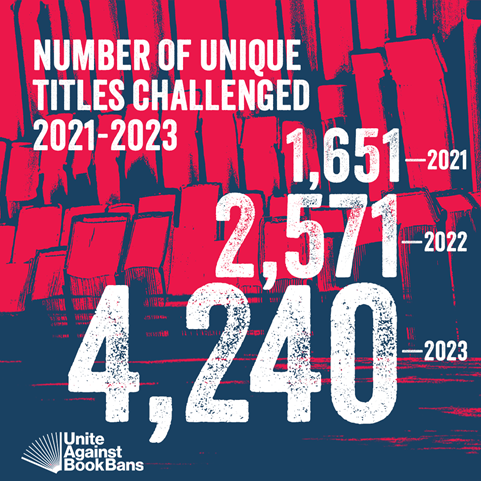 The number of titles targeted for censorship surged 65% in 2023 compared to 2022, reaching the highest levels ever documented by the American Library Association, which reported that the new numbers show efforts to censor 4,240 unique book titles in schools and libraries. This tops the previous high from 2022, when 2,571 unique titles were targeted for censorship.
The number of titles targeted for censorship surged 65% in 2023 compared to 2022, reaching the highest levels ever documented by the American Library Association, which reported that the new numbers show efforts to censor 4,240 unique book titles in schools and libraries. This tops the previous high from 2022, when 2,571 unique titles were targeted for censorship.
ALA's Office for Intellectual Freedom documented 1,247 demands to censor library books, materials, and resources in 2023. Four key trends emerged from the data gathered from 2023 censorship reports:
- Pressure groups in 2023 focused on public libraries in addition to targeting school libraries. The number of titles targeted for censorship at public libraries increased by 92% over the previous year; school libraries saw an 11% increase.
- Groups and individuals demanding the censorship of multiple titles, often dozens or hundreds at a time, drove this surge.
- Titles representing the voices and experiences of LGBTQIA+ and BIPOC individuals made up 47% of those targeted in censorship attempts.
- There were attempts to censor more than 100 titles in each of these 17 states: Colorado, Connecticut, Florida, Idaho, Illinois, Iowa, Kentucky, Maryland, Missouri, North Carolina, Ohio, Pennsylvania, Tennessee, Texas, Utah, Virginia, and Wisconsin.
"The reports from librarians and educators in the field make it clear that the organized campaigns to ban books aren't over, and that we must all stand together to preserve our right to choose what we read," said OIF director Deborah Caldwell-Stone. "Each demand to ban a book is a demand to deny each person's constitutionally protected right to choose and read books that raise important issues and lift up the voices of those who are often silenced. By joining initiatives like Unite Against Book Bans and other organizations that support libraries and schools, we can end this attack on essential community institutions and our civil liberties."
ALA will unveil its list of the top 10 most challenged books in the U.S. on April 8, which is Right to Read Day and during National Library Week, along with its full State of America's Libraries Report.
ALA president Emily Drabinski commented: "Every challenge to a library book is an attack on our freedom to read. The books being targeted again focus on LGBTQ+ and people of color. Our communities and our country are stronger because of diversity. Libraries that reflect their communities' diversity promote learning and empathy that some people want to hide or eliminate. Libraries are vital institutions to each and every community in this country, and library professionals, who have dedicated their lives to protecting our right to read, are facing threats to their employment and well-being."



SHELFAWARENESS.1222.S1.BESTADSWEBINAR.gif)


SHELFAWARENESS.1222.T1.BESTADSWEBINAR.gif)
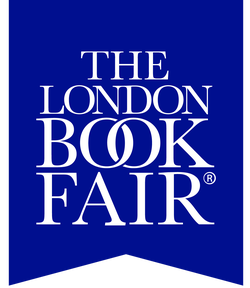 Despite some challenges, the audiobook market remains vital and with many areas ripe for sales and technological growth was the consensus of a group of audiobook experts speaking at a panel on "The Future of Audio in Publishing: Global Trends and the Impact of AI" on Wednesday at the London Book Fair, moderated by Videl Bar-Kar, v-p of audio at Bookwire.
Despite some challenges, the audiobook market remains vital and with many areas ripe for sales and technological growth was the consensus of a group of audiobook experts speaking at a panel on "The Future of Audio in Publishing: Global Trends and the Impact of AI" on Wednesday at the London Book Fair, moderated by Videl Bar-Kar, v-p of audio at Bookwire.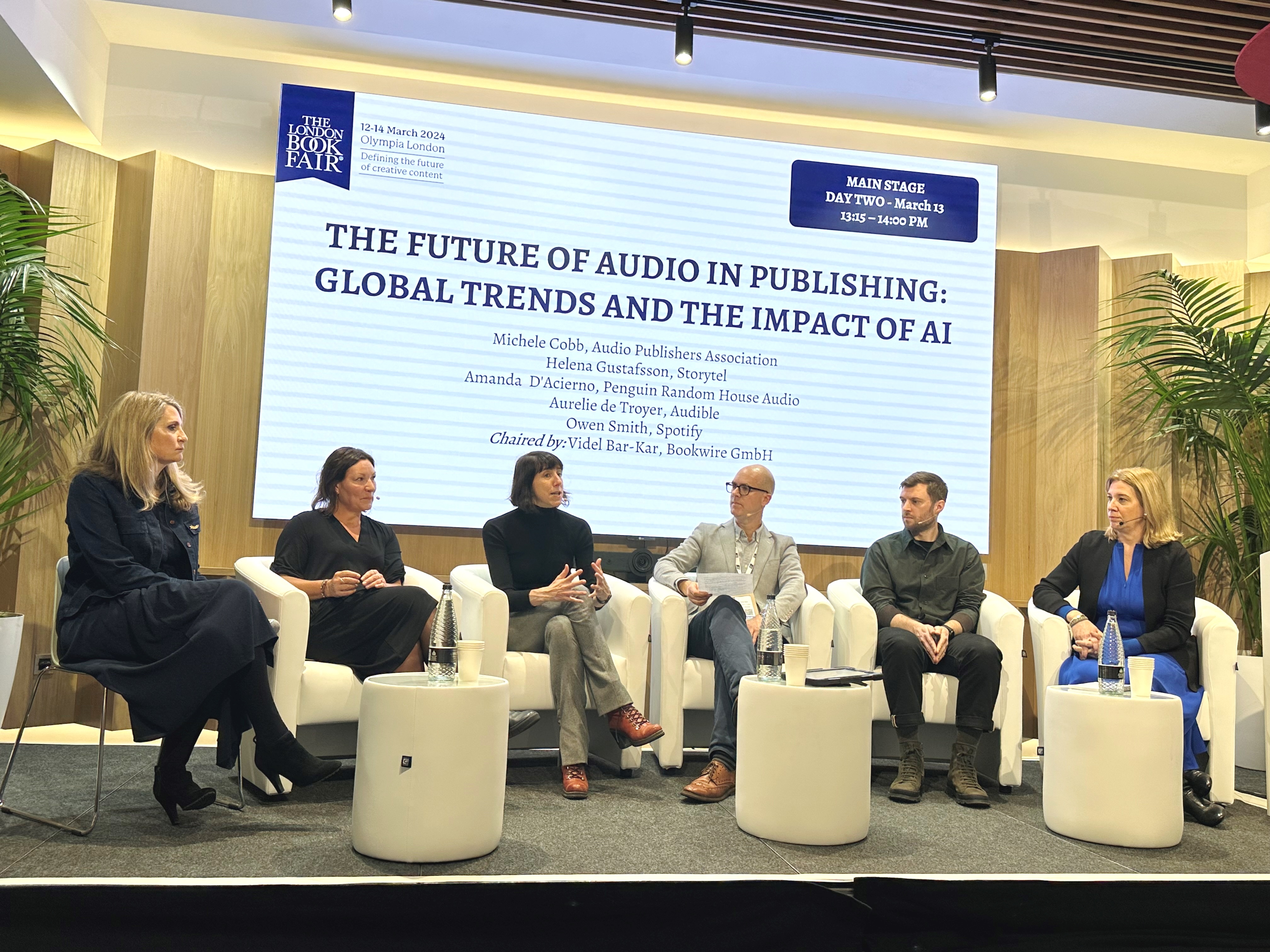
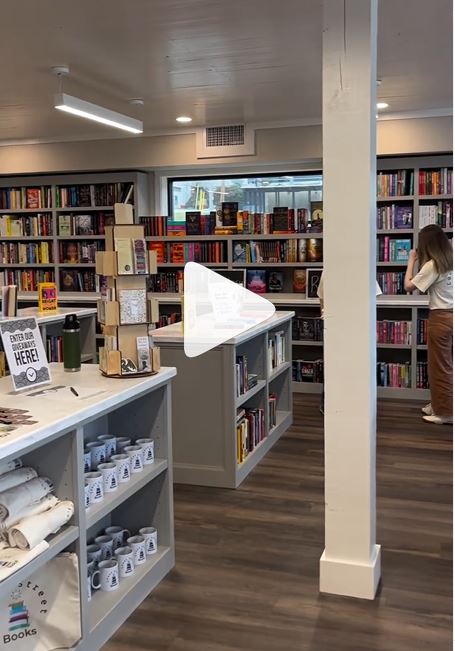
 Zando has launched a romance imprint called Slowburn, which aims to publish "all things love, spice, angst, longing, and iconic pairings. From dark romance with a dash of humor, to athlete pining, and sweeping romantic fantasies, our books offer fresh takes on the beloved genre."
Zando has launched a romance imprint called Slowburn, which aims to publish "all things love, spice, angst, longing, and iconic pairings. From dark romance with a dash of humor, to athlete pining, and sweeping romantic fantasies, our books offer fresh takes on the beloved genre."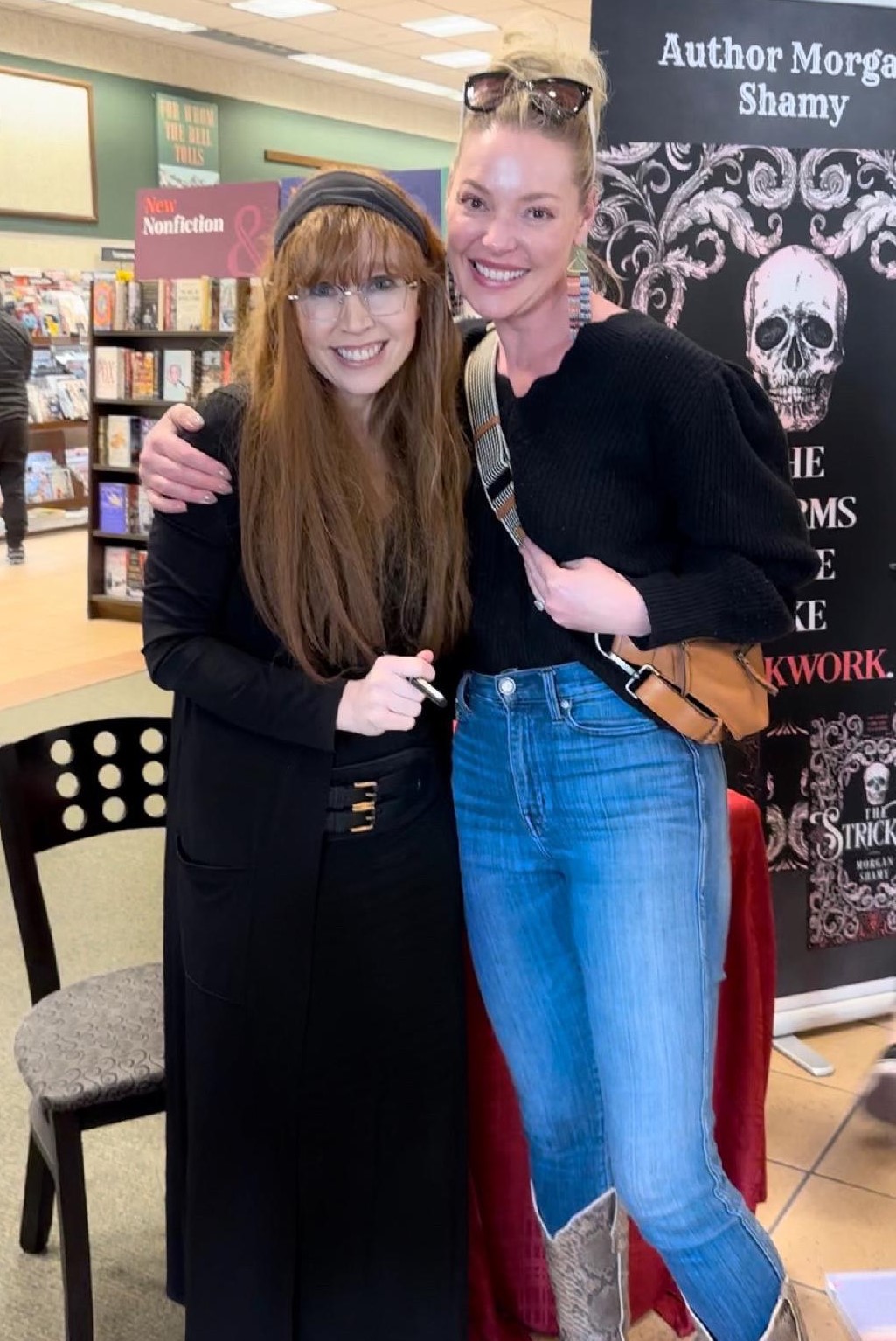 Morgan Shamy (left) at an event for her YA dark fantasy The Stricken (CamCat Books) at Barnes & Noble in Salt Lake City, Utah. One of the attendees was actress Katherine Heigl, who got a signed copy.
Morgan Shamy (left) at an event for her YA dark fantasy The Stricken (CamCat Books) at Barnes & Noble in Salt Lake City, Utah. One of the attendees was actress Katherine Heigl, who got a signed copy.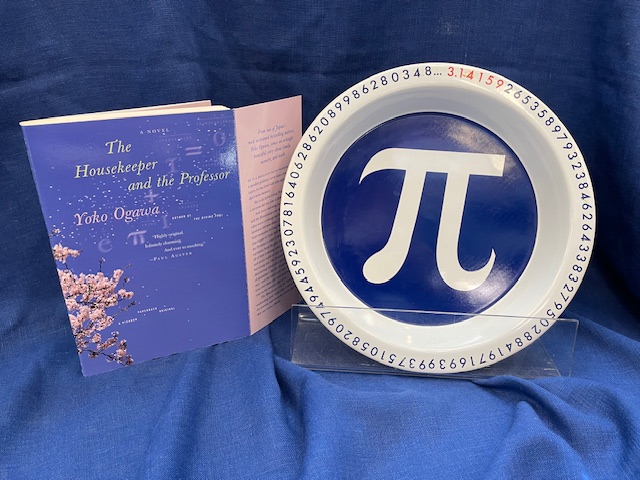 "We've been happily celebrating Pi Day at the BookMark with great books (and pie, of course), Every year on this day I get to display my Pi pie plate. This year we paired it with Yoko Ogawa's The Housekeeper and the Professor. If you open the front flap and look very carefully along the edge, you can see pi run out as far as it will fit. Pretty cool really,"
"We've been happily celebrating Pi Day at the BookMark with great books (and pie, of course), Every year on this day I get to display my Pi pie plate. This year we paired it with Yoko Ogawa's The Housekeeper and the Professor. If you open the front flap and look very carefully along the edge, you can see pi run out as far as it will fit. Pretty cool really," 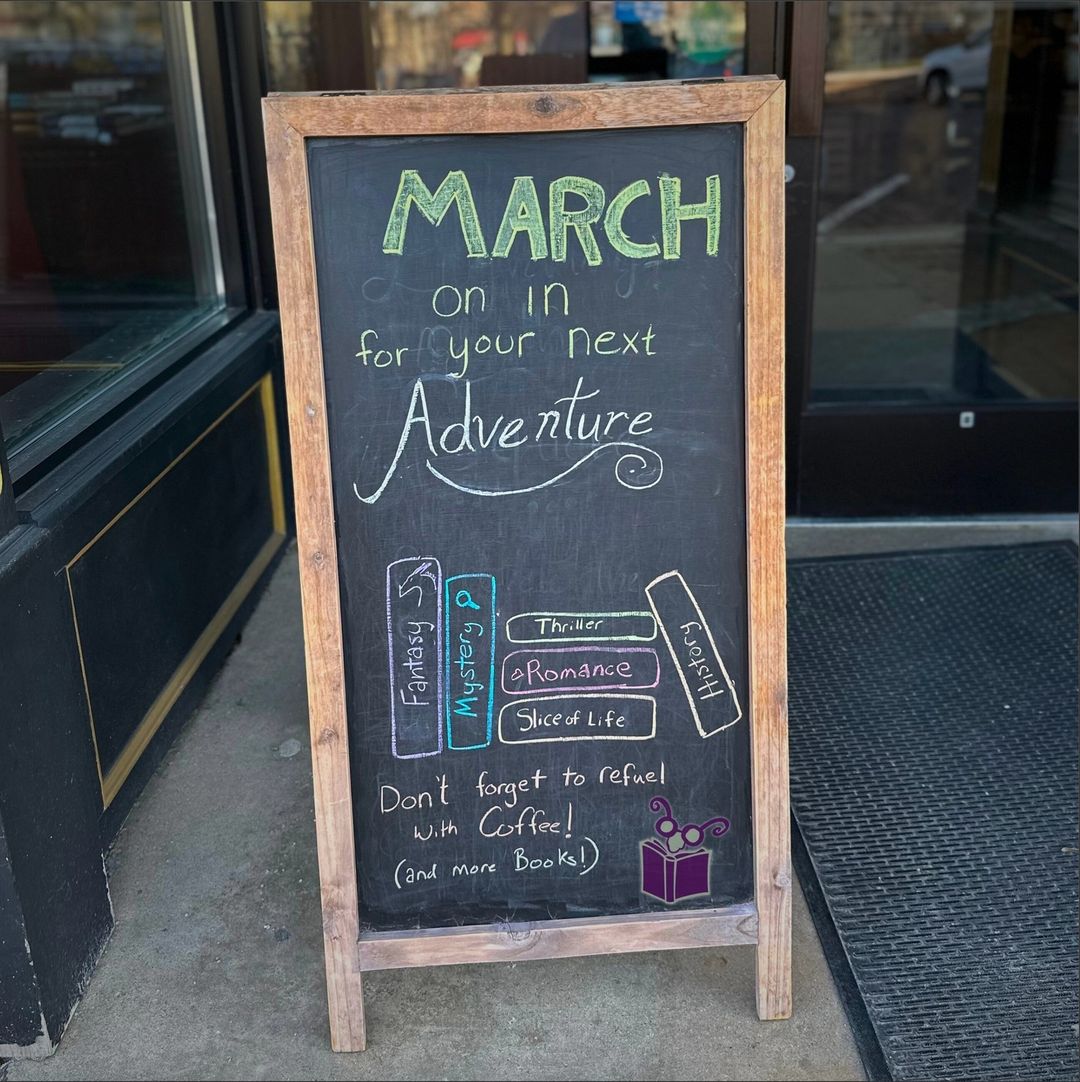
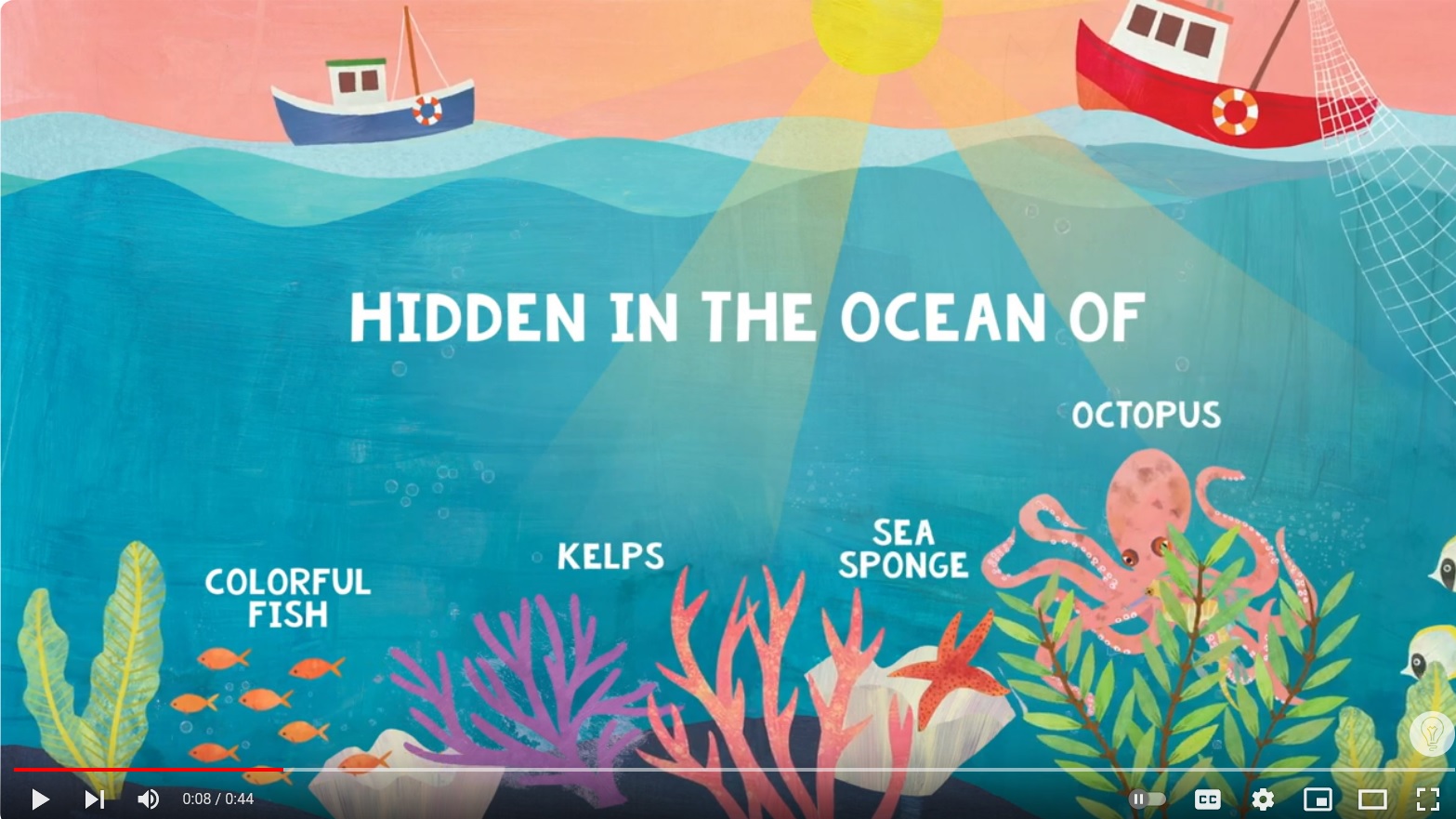 The Sea Hides a Seahorse
The Sea Hides a Seahorse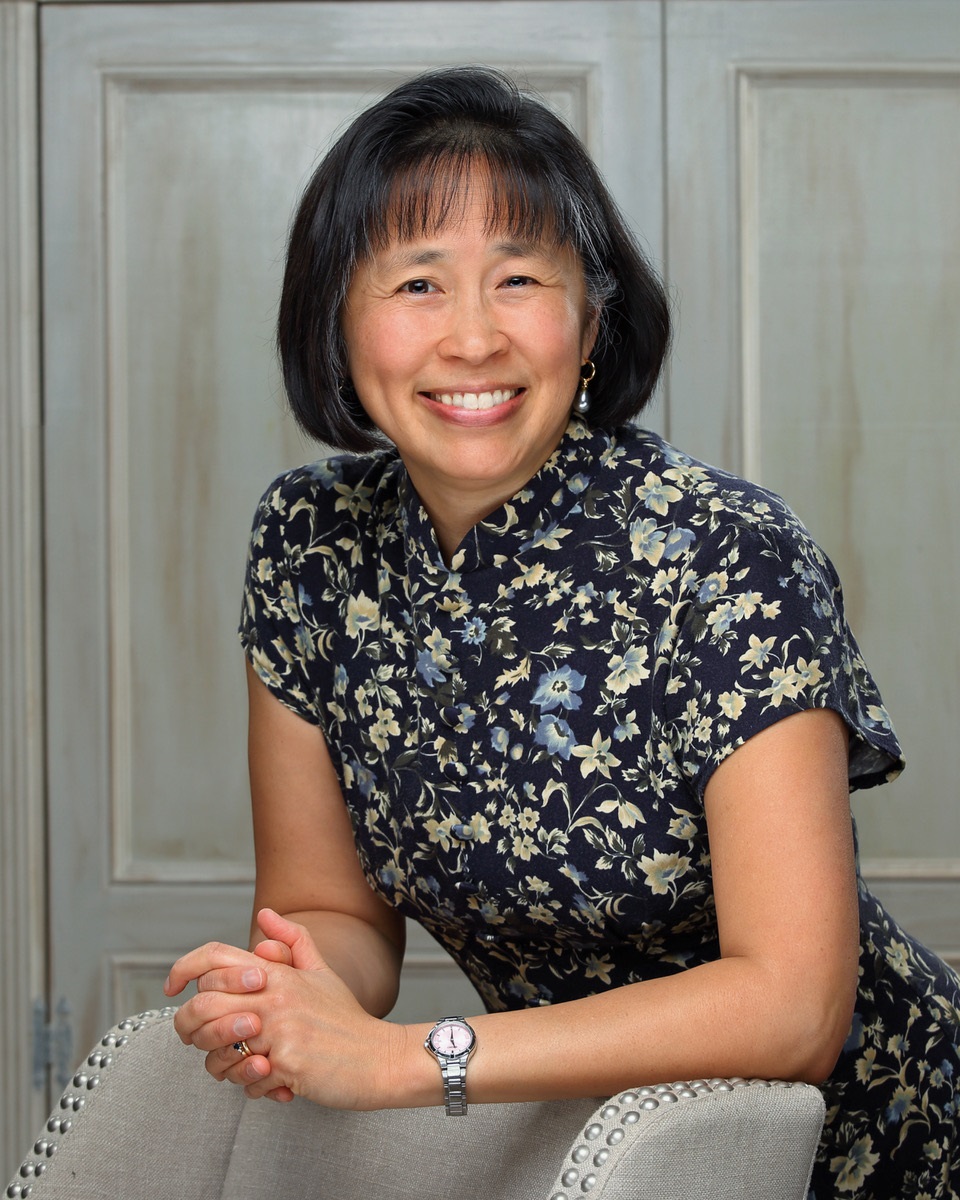
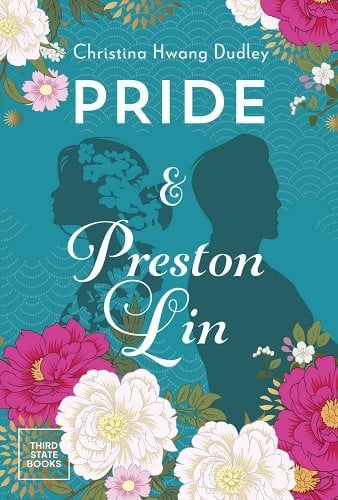 Book you're an evangelist for:
Book you're an evangelist for: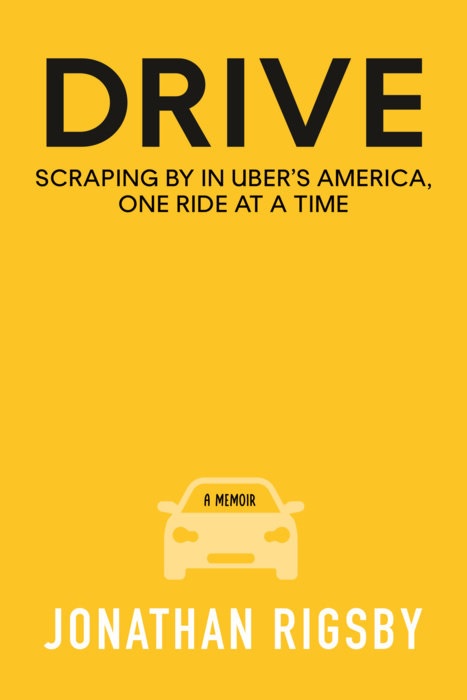 Possessed of a master's degree in Middle Eastern studies and performing at an exemplary level in his job as a counter-terrorism intelligence analyst for the State of Florida, Jonathan Rigsby in 2016 was successful by any reasonable definition of that term. But in the dark year when his marriage broke up and he desperately needed to supplement his income to hold up his end of the divorce settlement, he made the decision to sign on as an Uber driver in his home town of Tallahassee, Fla. Drive: Scraping by in Uber's America, One Ride at a Time is the grimly frank account of his experiences as a rideshare driver, an indictment of the country's rapidly expanding gig economy, and a frightening portrait of the ease with which one can slip from middle-class comfort to life on the edge of poverty.
Possessed of a master's degree in Middle Eastern studies and performing at an exemplary level in his job as a counter-terrorism intelligence analyst for the State of Florida, Jonathan Rigsby in 2016 was successful by any reasonable definition of that term. But in the dark year when his marriage broke up and he desperately needed to supplement his income to hold up his end of the divorce settlement, he made the decision to sign on as an Uber driver in his home town of Tallahassee, Fla. Drive: Scraping by in Uber's America, One Ride at a Time is the grimly frank account of his experiences as a rideshare driver, an indictment of the country's rapidly expanding gig economy, and a frightening portrait of the ease with which one can slip from middle-class comfort to life on the edge of poverty.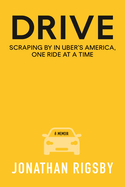
 During the 15 years I worked for the Northshire Bookstore in Manchester Center, Vt., I soon lost count of the variations on a theme that a seemingly basic store name could conjure: North Shire Bookstore, Northshire Bookshop, Northshire Book Shop, North Shore Bookstore (though we weren't located near any apparent massive water features). Even the "Center" in our address would go missing regularly. And on at least one occasion, I fielded a call from a desperate book sales rep who said he was in Manchester but could see no signs of our bookstore. He was in Manchester, N.H., at the time.
During the 15 years I worked for the Northshire Bookstore in Manchester Center, Vt., I soon lost count of the variations on a theme that a seemingly basic store name could conjure: North Shire Bookstore, Northshire Bookshop, Northshire Book Shop, North Shore Bookstore (though we weren't located near any apparent massive water features). Even the "Center" in our address would go missing regularly. And on at least one occasion, I fielded a call from a desperate book sales rep who said he was in Manchester but could see no signs of our bookstore. He was in Manchester, N.H., at the time.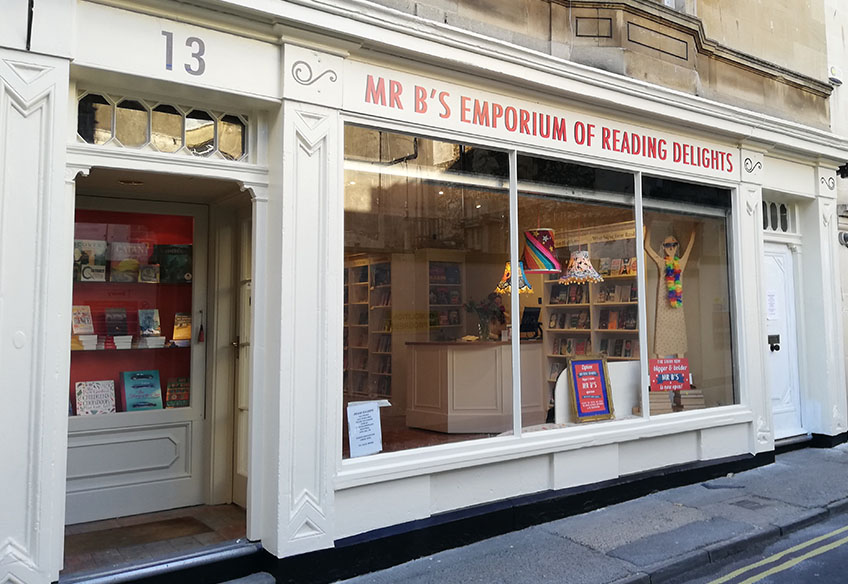 There are workarounds, of course. One of my favorite bookstore names,
There are workarounds, of course. One of my favorite bookstore names, 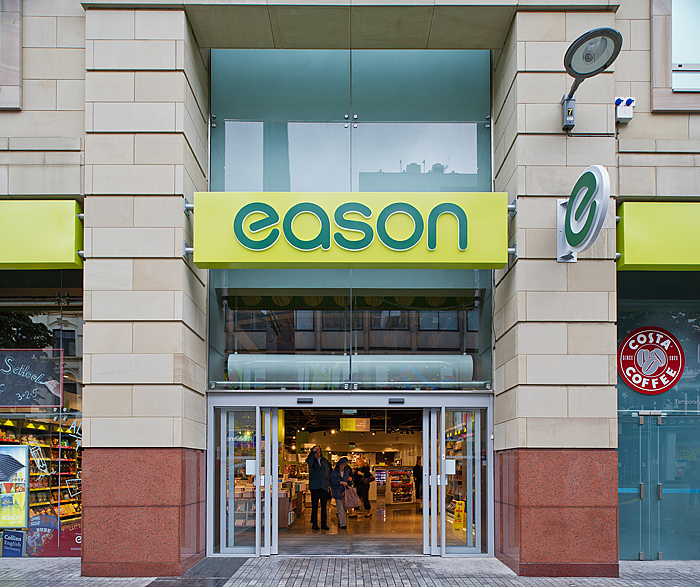 The precise moment I started down this bookstore name path for the column, however, happened yesterday when I read in the Irish Mirror that social media users in the country "are shocked after they discovered that the iconic Eason & Son book store
The precise moment I started down this bookstore name path for the column, however, happened yesterday when I read in the Irish Mirror that social media users in the country "are shocked after they discovered that the iconic Eason & Son book store 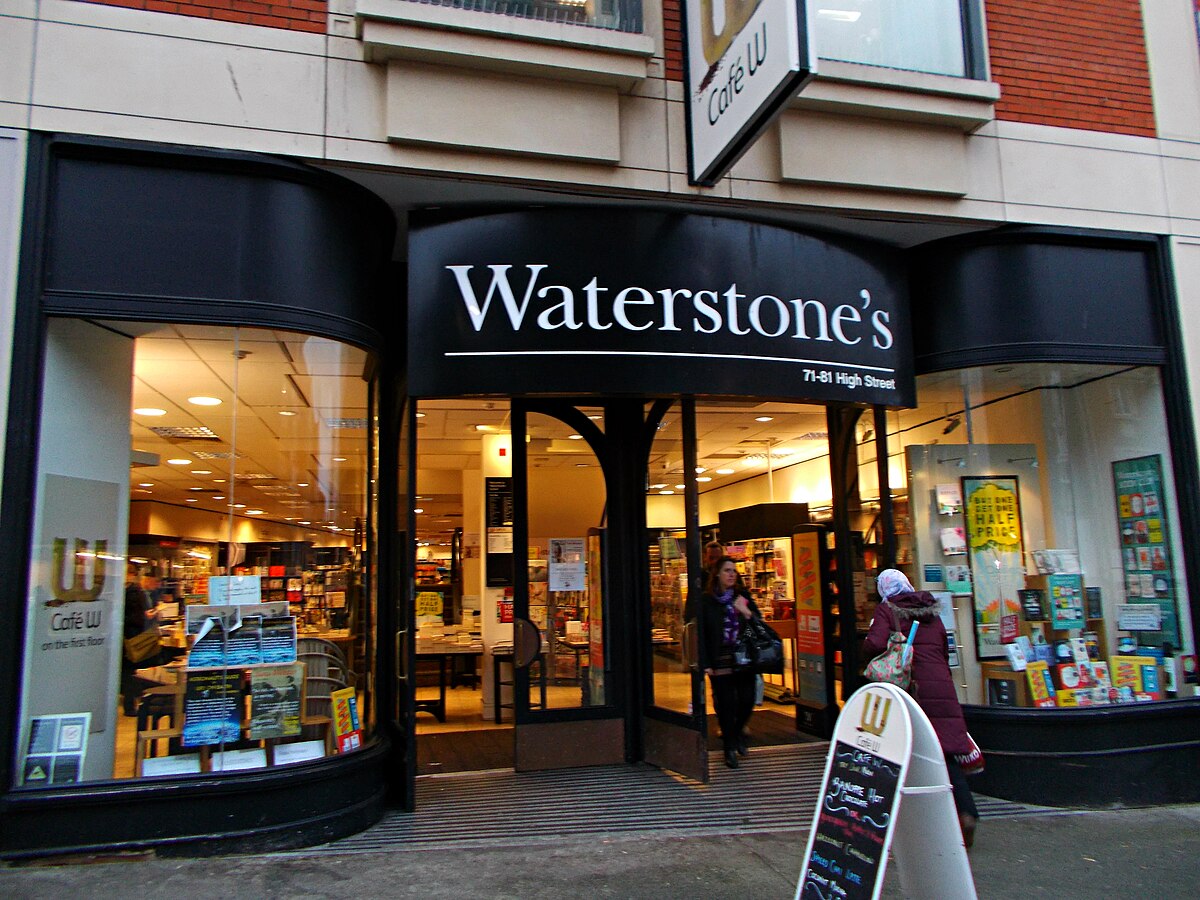 There are punctuation precedents for this issue. In 2006, the Waterstone's bookstore chain was "
There are punctuation precedents for this issue. In 2006, the Waterstone's bookstore chain was "